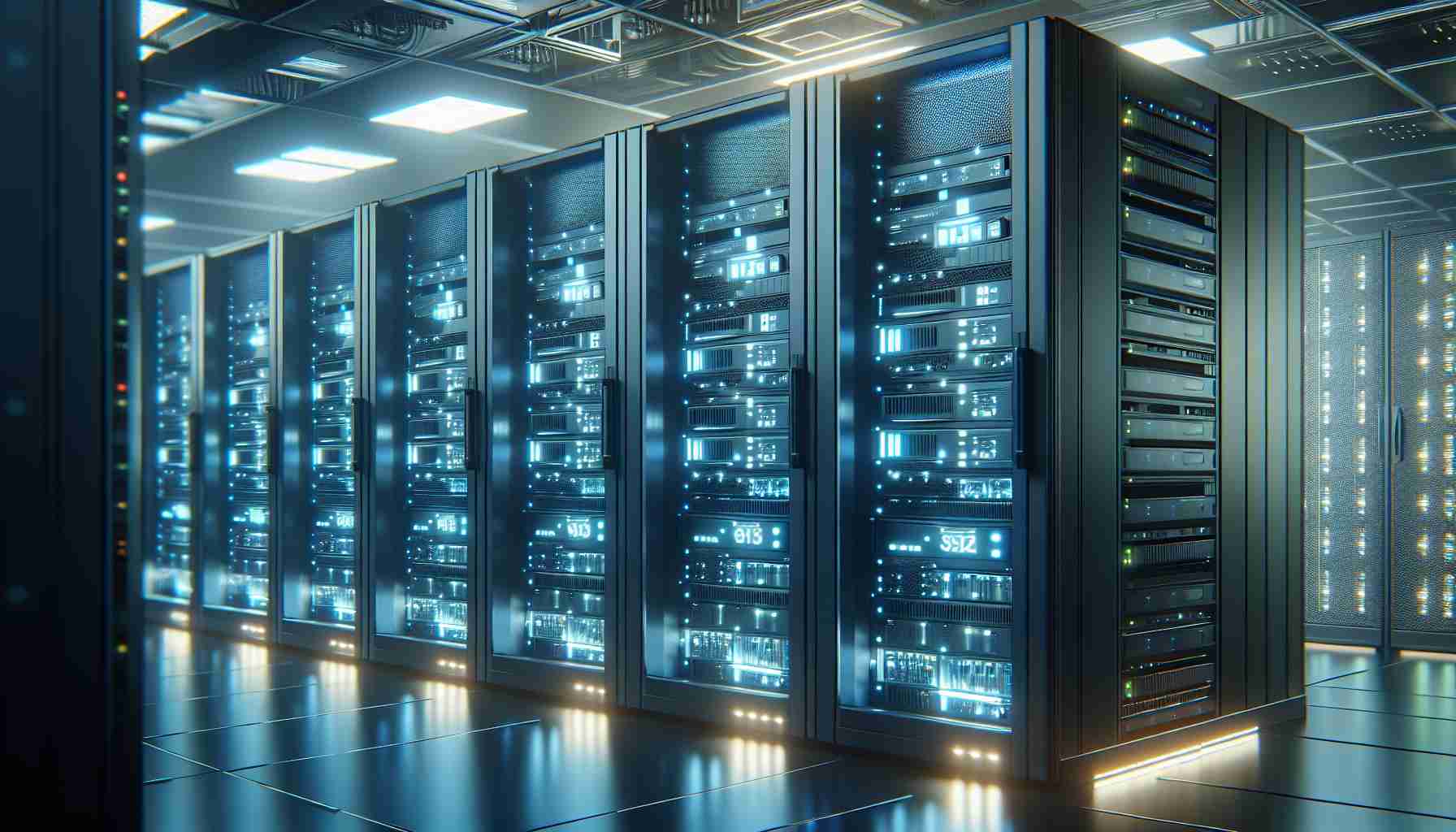Apple Steps Up Its AI Game with New Custom Processor Development
Apple is forging ahead with plans to enhance its data centers with a proprietary processor designed to handle a broad range of artificial intelligence (AI) functions that will be integrated into its forthcoming operating systems. Noted tech analyst Jeff Pu from Haitong International Securities has reported that Foxconn is assembling AI servers based on the M2 Ultra processor for Apple, with ambitions to incorporate the M4 chip by late 2025. This development could give the company a significant long-term advantage by allowing greater oversight of its production chain.
Despite recent reports asserting Apple’s focus on processing most AI functions directly on devices, certain complex operations may still require cloud support. Apple’s commitment to this strategy could further bolster privacy security measures. Rumors have also surfaced about Apple’s potential discussions with Google about integrating Gemini for specific AI functionalities.
According to a Wall Street Journal report, an internal project known as Project ACDC (Apple Chips in Data Center) has been underway for several years, but it remains unclear when it will be operational. Speculation suggests that Apple will introduce numerous AI-generated features starting with iOS 18, which is expected to be announced at WWDC 2024 alongside other major system releases.
The demand for generative AI systems, such as large-scale language models powering applications like ChatGPT, requires substantial computational power typically provided by data center servers equipped with NVIDIA chips. To reduce reliance on external producers, major tech companies are developing their own AI chips, as seen with Google’s successful Tensor project. Apple began incorporating AI-focused processors (NPU) into its mobile devices in 2017 and moved to replace Intel chips with custom processors for Macs in 2020—enhancing product differentiation. The upcoming launch of new iPads will reportedly feature the debut of an M-series processor, the M4.
Apple’s In-House AI Processor Initiative: Enhancing Data Centers and Operating Systems
With the aim to further its capabilities in artificial intelligence, Apple is actively working on in-house processors to power its data centers. The move is anticipated to boost the function and efficiency of upcoming operating systems. Analyst Jeff Pu suggests that Apple is already in the process of using the M2 Ultra processor in AI servers assembled by Foxconn. By integrating the M4 chip by late 2025, the tech giant seeks to strengthen its control over the production chain.
Despite the trend toward on-device processing for AI tasks, which supports user privacy and security, some complex operations will likely continue to need the power of cloud computing. Additionally, Apple’s potential collaboration with Google on the Gemini project for specific AI functions points to the company’s openness to strategic partnerships.
Apple’s Project ACDC (Apple Chips in Data Center) illustrates a sustained internal effort, the scope of which is yet to be publicly detailed. Upcoming system releases, including iOS 18—expected to debut at WWDC 2024—may showcase novel AI-driven features enabled by these advancements.
Considering the increasing use of generative AI systems, like those used in ChatGPT, which demand high computational capacity typically sourced from data centers with NVIDIA chips, many tech firms are pursuing proprietary AI chips. This movement toward self-reliance began for Apple in 2017 with the integration of AI-focused processors (NPU) in its mobile devices. In 2020, Apple intensified its product differentiation by replacing Intel chips with its own for Macs. The M-series processors, including the anticipated M4, will also be featured in the upcoming iPad releases, further emphasizing the company’s commitment to vertically integrating its hardware and software stacks.
Key Questions and Answers:
Q: What is the significance of Apple developing its own processors for AI?
A: Developing its own processors for AI allows Apple a higher degree of control over its hardware and software integration, enhances privacy and security for users, and potentially reduces reliance on external chip manufacturers such as Intel and NVIDIA.
Q: What are the potential challenges and controversies associated with Apple’s move to in-house processors?
A: Challenges include the technical difficulty of developing and manufacturing high-performance AI processors. Controversies could arise over market competition and potential monopolistic practices as companies like Apple create more closed ecosystems.
Q: How does AI processor development potentially benefit Apple’s products and services?
A: AI processors can optimize device performance, improve energy efficiency, bring new and enhanced features to users, and strengthen Apple’s position in the competitive AI landscape.
Advantages and Disadvantages:
Advantages:
– Improved performance and efficiency of AI applications
– Potential for better integration between hardware and software
– Reduced dependency on external suppliers
– Enhanced user privacy and data security
Disadvantages:
– High R&D costs and resource investment
– Risk of delays and technical challenges in developing cutting-edge processors
– Potential reduction in industry competition as companies build proprietary ecosystems
For related information, users can check Apple’s official website at Apple.
Apple’s efforts underscore the importance of chip self-sufficiency in the tech industry, where AI is becoming increasingly vital. This strategic move mirrors similar trends by tech giants like Google, suggesting a competitive future for AI processor technology.

